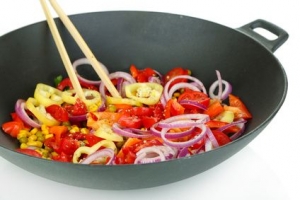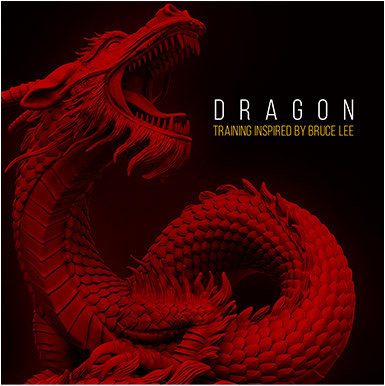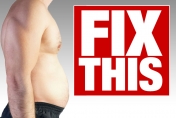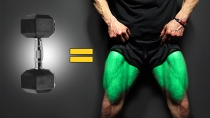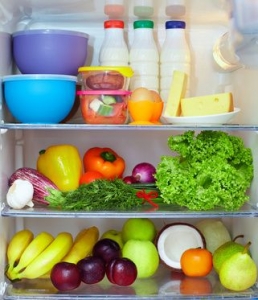
About a month ago I wrote an article about clean eating entitled “What’s It Really Mean to Eat Clean: The Celebrity Clean Eating Trend,” to shed some light on this buzzword that so many celebrities, bloggers and health-focused women use to describe their eating habits. As I continue to read articles where women talk about their ‘clean diets’ I’ve seen that there are many myths about clean eating. Unfortunately these myths can turn what is really just a set of healthful eating guidelines into a restrictive diet of ‘can’t eat this, can’t eat that.’
It’s true that depending on who you are, eating clean could have a slightly different meaning. For some, clean eating involves always eating organic to avoid pesticides and other chemicals at all costs. For others, organic produce may be too expensive or not readily available, and they instead choose a ‘whole foods’ definition that includes any food in its natural form. Is either of these the ‘right’ definition of clean eating? Absolutely not. Both are healthy, valid ways to eat that will help you with weight loss and increased energy levels, not to mention looking and feeling better.
Before we go into the 8 misconceptions, let’s have a quick review of how clean eating is commonly defined. A person who practices clean eating generally eliminates refined sugar and alcohol, eats 5 – 6 times per day, always eats breakfast and drinks a lot of water. They focus on eating foods in their whole form including fruits, vegetables, nuts, seeds, whole grains and animal proteins. For clean eaters, eliminating chemicals and additives (like those found in processed foods) is a priority, and for many this includes eating organic to limit pesticide exposure.
Now that we’ve covered what it is, let’s discuss what it’s NOT.
Myth #1) I have to go vegan.
Definitely not! The idea behind clean eating is to eat whole, natural foods. So, if you’d like to keep dairy, eggs and meats in your diet, the most important thing is to choose lean (low fat) versions. If you’re following a chemical/additive free clean diet, you’ll also want to choose organic and free range/grass fed animal products.
No, you don’t! Raw diets involve eating almost exclusively uncooked vegetables, fruits, nuts, seeds and sometimes even animal meats. The idea behind eating raw is that the cooking process breaks down digestive enzymes and kills healthy bacteria that could be beneficial to our bodies. While there’s nothing wrong with choosing to eat some or all of your foods raw, this is not a tenet of clean eating.
Myth #3) I can’t eat red meat.
If you’re practicing clean eating, you can eat red meat but there are a few things to look out for to keep it healthy. First, if you want to eat beef, choose lean instead of fatty cuts, and if possible find grass-fed organic beef. Grass fed beef is more natural, contains less fat and is raised by smaller ranches instead of large scale farms, which means it’s less likely to contain antibiotics and growth hormones. Other great alternatives to beef are venison and bison if you can find them. Try a natural or organic grocery store or do some research on the web to see if there’s an organic or grass-fed ranch in your state.
Myth #4) It’s ‘the Paleo Diet’.
There are some similarities between the Paleo Diet and clean eating, but there are key differences too. The “contemporary” Paleolithic diet consists mainly of fish, grass-fed pasture raised meats, vegetables, fruit, fungi, roots and nuts, or basically anything our caveman ancestors could have hunted or foraged in their environment. Paleo excludes all ‘modern’ foods including grains, legumes, dairy products, salt, refined sugar and processed oils – because none of these foods were eaten during the caveman days. Paleo and clean eating have the ‘whole foods’ concept in common, although clean eaters do partake in whole grains, legumes and dairy.
Myth #5) You can’t eat anything from a bag or box.
While the goal in clean eating is to limit processed foods with chemical additives, this doesn’t mean that anything that comes in a box or bag is off limits. They key here is to read labels. If your packaged foods contain natural ingredients (and not a whole bunch of stuff you don’t recognize or can’t pronounce) chances are they’re pretty healthy.
Myth #6) It’s a low-carb diet.
The concept of eating clean involves improving the quality of the carbs you eat, but not eliminating or restricting them. Focus on cutting out ‘white’ carbs like white bread, white rice and sugar. Substitute these for brown rice, whole grain breads, quinoa, squash, fruits and veggies.
Myth #7) I can’t have anything sweet.
While it’s advisable to ditch refined white sugar if you’re striving to eat clean, this does not mean you can’t prepare sweet treats with more natural sweeteners! Some all-natural alternatives include stevia (actually an herb, it’s totally calorie-free), honey, and 100% pure maple syrup,
Myth #8) It’s really expensive to eat clean.
It doesn’t have to be. It you’re on a tight budget but want to eat as clean as possible, focus on eating as many fruits, veggies and lean proteins as you can (beans, canned tuna and chicken breast are good low-budget lean protein options), and cut back on packaged foods. While organics might be out of your price range, you may find that eating healthy whole foods costs the same or less as the less-healthy packaged options.
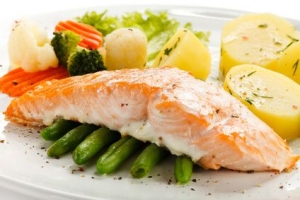
And finally, if you’d like to stay up to date with the AthleanXXforWomen.com blog, then please like us on Facebook, follow us on Twitter and follow us on Pinterest.
P.S. We are a growing community dedicated to and passionate about realistic fitness and nutrition for REAL women. If you enjoyed this post please feel free to share on Facebook, Twitter and Pinterest. It would be incredibly appreciated!


